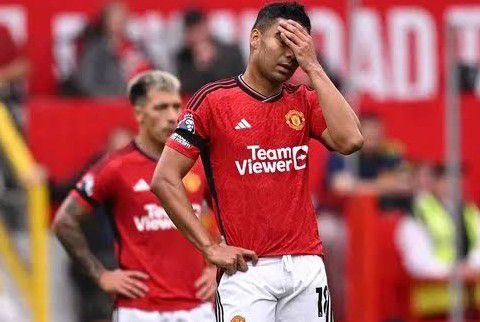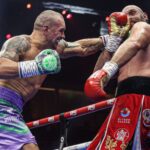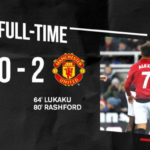
Manchester United’s participation in next season’s Europa League is currently in jeopardy, despite their recent FA Cup final victory over Manchester City. The 2-1 win at Wembley secured Erik ten Hag’s team a spot in the prestigious European competition alongside Tottenham Hotspur. However, an issue concerning UEFA’s multi-club ownership rules threatens to derail their European campaign.
At the heart of the matter is INEOS, the multinational chemical company headed by British billionaire Sir Jim Ratcliffe, which owns a substantial stake in both Manchester United and French club OGC Nice. UEFA regulations stipulate that two clubs owned by the same entity cannot compete in the same tournament to preserve the integrity of the competition.
Currently, INEOS holds a 27% stake in Manchester United but is planning a significant investment of £245 million, which would increase their ownership stake to over 30%. This level of ownership exceeds the threshold set by UEFA’s rules for multi-club ownership. INEOS also owns Ligue 1 side Nice outright. Given that Nice finished fifth in the French top-flight, they have already secured their place in the Europa League for next season.
The potential conflict arises from the fact that if INEOS completes its planned investment in Manchester United, it would then be in breach of UEFA’s regulations, which could lead to one of the clubs being forced out of the Europa League and into the UEFA Conference League.
The decision on which club would face relegation from the Europa League hinges on their respective league finishes. Nice, having finished fifth in Ligue 1, stands in a stronger position compared to Manchester United’s eighth-place finish in the Premier League. As a result, Manchester United are more likely to be the club that faces demotion to the Conference League if INEOS does not resolve the ownership issue.
ALSO SEE: How Playing for Super Eagles Transformed My Life – Ademola Lookman
This scenario presents a significant challenge for both Manchester United and INEOS. The stakes are high, as missing out on the Europa League would not only impact the club’s financial revenues but also its appeal in attracting top-tier talent during the transfer window.
UEFA’s stringent enforcement of the multi-club ownership rules aims to prevent any conflicts of interest and ensure fair play across its competitions. This situation serves as a crucial test case for the governing body’s regulations and their implementation.
Manchester United and INEOS will need to act swiftly to address this ownership conflict. Potential solutions could involve restructuring the ownership stakes or seeking exemptions, though these options come with their own complexities and hurdles.
The coming weeks will be critical as both the club and its fans await clarity on their European prospects. This situation underscores the broader implications of multi-club ownership in modern football and its impact on competitive integrity.
As the situation develops, Manchester United’s future in European competitions remains uncertain. The club’s management, legal team, and stakeholders will be working diligently to find a resolution that allows the team to compete in the Europa League next season while adhering to UEFA’s regulations.
Stay tuned for updates on this developing story as Manchester United navigates this challenging scenario in their quest for European football.


















